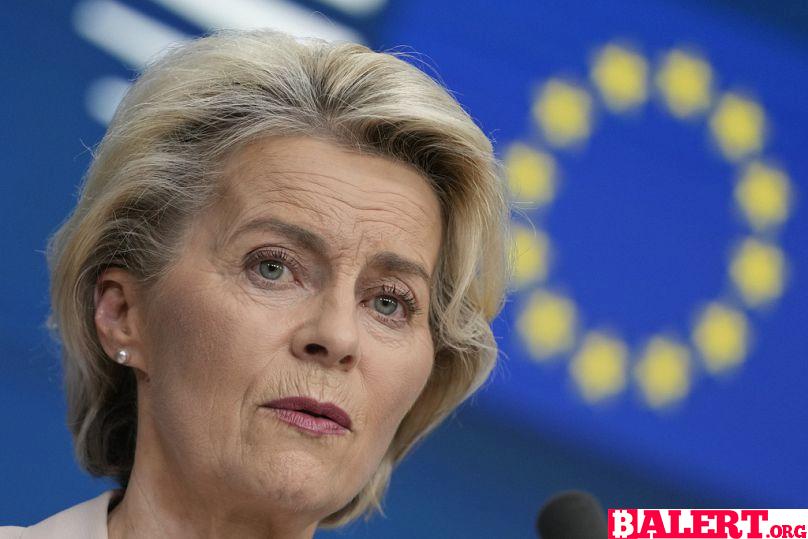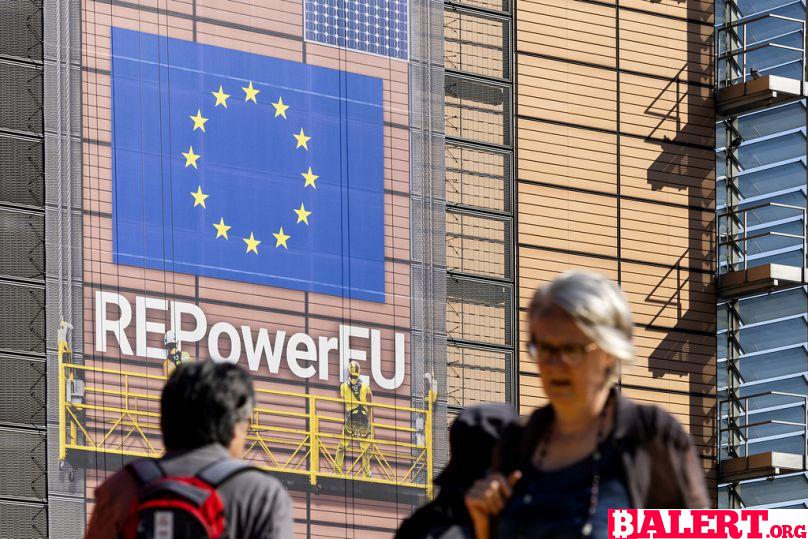World
The EU’s Approach to Technology Policy Enforcement
Explore the European Union’s strategic framework for technology policy enforcement, examining its regulatory approaches, key challenges, and the impact on innovation and digital sovereignty in a rapidly evolving tech landscape.

The EU’s Role in Shaping Technology Policy
Over the past decade, the European Union has emerged as a leader in global technology policy, implementing transformative regulations such as the General Data Protection Regulation (GDPR), the Digital Services Act (DSA), and the Artificial Intelligence Act (AI Act). These laws aim to stimulate innovation, create equitable markets, and uphold democratic values. However, the true effectiveness of these regulations hinges on their enforcement; if they exist solely as unfulfilled promises, their impact on European citizens will be negligible.
Historically, enforcement has been an underappreciated aspect of policy-making, but there is a notable shift in attitude towards this issue. As the EU elections approach, discussions have increasingly centered on the next Commission’s mandate prioritizing the enforcement and implementation of existing regulations over the introduction of new legislation. In fact, a draft document from the Council of the EU underscored this sentiment by stating, “the implementation of already-adopted regulations should be prioritised over the creation of new laws.” However, such intentions will only translate into meaningful action with concrete commitments from both Brussels and member state capitals.
To effectively harness enforcement, the EU must embrace innovative strategies that ensure laws are not only passed but also actively upheld. There are four pivotal areas where a concentrated effort can enhance enforcement: policy, procedures, people, and politics.
Making Enforcement Clear and Actionable

For enforcement to be effective, laws must be clear, actionable, and adaptable. Legislators need to minimize ambiguities while avoiding overly prescriptive language that could limit future applicability. For example, the technical specifications of the AI Act are being transformed into adaptable standards and codes of practice to maintain relevance in our fast-evolving technological landscape. Engaging with civil society and independent experts during the development of these laws can further ensure that guidelines for interpretation and enforcement are both clear and applicable as technology advances.
A notable ambiguity exists in two recent laws — the DSA and the AI Act — regarding the necessity for impact assessments, which must consider risks to human rights. Companies, auditors, and authorities will face the challenge of navigating this without clear guidance. The EU should strike a balance between investing in innovation and adequately funding enforcement agencies; under-resourced regulators are simply insufficient to uphold the laws effectively.
The European Commission and member states need to enhance collaboration with civil society to establish robust and meaningful guidelines for conducting impact assessments. This collaboration can build on previous discussions related to the European Media Freedom Act.
Strengthening Regulatory Resources

Effective enforcement requires well-resourced regulators equipped with the technical expertise necessary to navigate complex technology, policy, and legal issues. The EU must ensure that investments in innovation are matched by adequate funding for enforcement agencies; inadequate resources for regulators will hinder compliance efforts. Providing regulators with the necessary skills and resources will help avert potential skills shortages and bolster compliance.
- For instance, at the national level, EU member states should heed complaints from data protection authorities regarding insufficient resources by increasing financial, human, and technical resources for supervisory authorities across the EU’s tech and data policy spectrum.
- Cross-border, the Commission and member states must work to lower barriers to joint operations, fostering better coordination and harmonizing enforcement capabilities throughout the EU.
- At the EU level, establishing a dedicated, independent EU digital enforcement agency could centralize expertise and enhance regulatory cohesion.
A Decentralized Approach to Enforcement
However, it is crucial not to rely solely on centralized enforcement mechanisms. Decentralizing enforcement responsibilities can alleviate bottlenecks and improve overall effectiveness. Involving civil society, academia, and other practitioners in monitoring and oversight can enhance enforcement efforts. We are already witnessing this with the DSA’s implementation, where civil society participation has bolstered accountability and distributed the “enforcement burden.”
Transparency and public oversight are equally vital. Governments should implement measures such as mandatory algorithm registries, the publication of impact assessments, and making data accessible to researchers. These initiatives can promote broader public engagement and ensure that enforcement is both transparent and accountable.
- Moreover, adequate resources and compensation for these contributors are essential to prevent overreliance on under-resourced sectors.
- For example, to mitigate capacity constraints in the implementation and enforcement of the AI Act, the proposed AI Office can prioritize enforcement funding based on computational trends while collaborating closely with academia and civil society to shape codes of practice or develop relevant methodologies and benchmarks.
From Policy to Reality
For enforcement to be effective, it must withstand political and economic pressures. The independence of regulators is crucial to resist corporate influence and uphold democratic principles. The EU and its member states must be prepared to enforce laws decisively, even against powerful tech corporations. Such resilience will not only reinforce the credibility of regulations but also affirm the EU’s regulatory soft power on the global stage.
However, ensuring regulatory independence is a complex challenge. The Fundamental Rights Agency’s 2024 report on the GDPR in practice revealed that most national regulators face significant hurdles in maintaining the independence guaranteed by the GDPR.
To empower regulators to fulfill their responsibilities effectively, sustained investment and a genuine commitment to their independence are imperative. After ten years of unprecedented policy activity, it is time for the EU to translate these new policies into actionable realities. To strengthen and protect regulatory resilience, EU lawmakers and regulators must prioritize clear and actionable enforcement policies, ensure adequate financial, human, and technical resources for independent enforcement, and support enforcement efforts through inclusive and decentralized procedures.
The next decade will be pivotal in reinforcing the EU’s regulatory framework aimed at safeguarding democratic principles and human rights. By investing in innovative enforcement strategies now, the foundation for a more secure and human-centric future in Europe can be established. Stronger enforcement will not only enhance the EU’s regulatory framework but also promote market and societal stability, ultimately fostering European innovation and competitiveness. By setting a high standard for enforcement, the EU has the potential to cultivate an environment where technology serves democracy amidst rapid innovation. The alternative is relinquishing control to monolithic industries driven purely by profit motives, largely situated outside Europe — a scenario that could jeopardize democracy by placing it in the hands of unaccountable tech giants.
Maria Koomen is the Emerging Technology Governance Director, and Raegan MacDonald is a Senior Fellow at the International Center for Future Generations (ICFG), a Brussels-based think tank.
At Euronews, we believe all views matter. Contact us at view@euronews.com to send pitches or submissions and be part of the conversation.
World
Dominique Pelicot Testifies in Harrowing Rape Trial
Join us as Dominique Pelicot courageously testifies in a harrowing rape trial, shedding light on the complexities of trauma and justice. Her powerful story raises crucial questions about the legal system and the importance of support for survivors.

Dominique Pelicot Takes the Stand in Shocking Rape Trial
In a courtroom drama that has captivated France and garnered international attention, Dominique Pelicot, the man at the center of a harrowing rape trial, finally addressed the court. With tears streaming down his face, he recounted how his wife had been instrumental in helping him cope with a tumultuous past marked by trauma. He revealed that he had endured a sexual assault at the tender age of nine while hospitalized, and he also witnessed a gang rape during his teenage years while working as an apprentice electrician on a construction site.
“She didn’t deserve this, I acknowledge that,” Mr. Pelicot stated, his voice barely audible as he struggled to convey his emotions. The gravity of the situation weighed heavily on him, and the courtroom fell silent, straining to catch his every word.
Now 71 years old, Mr. Pelicot faces serious allegations of drugging his wife, Gisèle Pelicot, whom he has been married to for half a century, over a span of nearly ten years. Prosecutors contend that he used drugs to render her comatose, allowing him to rape her repeatedly. Furthermore, authorities allege that he went so far as to invite numerous men into their home, facilitating a nightmarish scenario where they, too, engaged in the assault of his wife.
Overall, 51 men, including Mr. Pelicot, are on trial concurrently, primarily facing charges related to the aggravated rape of Ms. Pelicot. Among them, one individual has already pleaded guilty to similar crimes, admitting to drugging his own wife to assault her and inviting Mr. Pelicot to partake in the horrific act while she was incapacitated.
Mr. Pelicot’s unexpected testimony came after a tumultuous start to the trial. Just a week in, he was stricken with severe health issues that forced him to miss four consecutive days in court. The head judge ultimately decided to postpone proceedings, as Mr. Pelicot was diagnosed with kidney stones, a kidney infection, and prostate complications, adding yet another layer of complexity to this already harrowing case.
World
Meta Bans Russian State Media Outlets from Social Media Platforms
Explore the implications of Meta’s decision to ban Russian state media outlets from its social media platforms. Understand the impact on information dissemination and the ongoing battle against misinformation in the digital landscape.

Meta Imposes Global Ban on Russian State Media Outlets
In a significant move, Meta Platforms, Inc., the parent company of Facebook, has announced the prohibition of Russian state media outlets, including RT (Russia Today) and Rossiya Segodnya, from all its social media platforms. The decision stems from the company’s concerns regarding the deceptive strategies employed by these media organizations to execute covert influence operations across the internet.
Meta made this announcement on Monday, emphasizing that the ban will be enforced worldwide across its various platforms, such as Instagram, WhatsApp, and Threads. The rollout of this ban is expected to take place over the coming days.
Statement from Meta
A spokesperson for Meta elaborated on the decision, stating, “After careful consideration, we have expanded our ongoing enforcement actions against Russian state media outlets. As a result, Rossiya Segodnya, RT, and other affiliated entities are now banned from our applications globally due to their involvement in foreign interference activities.”
For further insights into this development, watch the video in the player above.
World
Trump Recalls Alleged Assassination Attempt While Golfing
Explore Donald Trump’s chilling recollection of an alleged assassination attempt he experienced while enjoying a round of golf. Delve into the tense moments and his reflections on safety, fame, and the unpredictability of public life.

In a recent interview on the social media platform X, Republican presidential nominee Donald Trump recounted a harrowing incident he claims to have experienced while playing golf. Trump described how, during a peaceful Sunday morning round with friends, the tranquility of the day was abruptly shattered by the sound of gunfire in the air.
“It was a beautiful day, everything was just perfect,” Trump reflected. “Then all of a sudden, we heard shots being fired—probably around four or five in total.” He went on to explain that a Secret Service agent was the first to spot the suspect, who was allegedly armed with an AK-47, a powerful assault rifle.
“The agent saw the barrel of the weapon and immediately took action, returning fire at the barrel and aiming in the direction of the bushes,” Trump detailed. “I would have loved to have sunk that last putt, but we decided it was best to leave the scene promptly.”
Trump expressed his gratitude towards the agents and a vigilant civilian who aided in tracking down the suspect, who was eventually apprehended following a high-speed chase.
Suspect Faces Multiple Federal Gun Charges
The FBI has identified the suspect as Ryan Wesley Routh, accusing him of targeting Trump during his time at the golf club in West Palm Beach, Florida. According to an FBI report, Routh had allegedly hidden among the hedges of the golf course for an astonishing 12 hours. Authorities discovered an SKS-style assault rifle, a GoPro camera, and a bag of food at the scene.
The 58-year-old Routh is now facing two serious federal gun charges. If convicted on both counts, he could face a combined maximum sentence of 20 years in prison. Notably, neither of the charges is directly related to an assassination attempt. The first charge pertains to possessing a firearm despite a prior felony conviction, which carries a potential 15-year sentence, a fine of $250,000 (€225,000), and three years of supervised release.
The second charge involves possession of a firearm with an obliterated serial number, which could result in a five-year prison term, the same financial penalties, and also three years of supervised release. As the investigation continues, additional charges could be forthcoming.
While the motive behind Routh’s actions remains unclear, his digital footprint reveals strong political affiliations, particularly concerning issues surrounding Ukraine and China. Routh consistently expressed support for Ukraine across various social media platforms, even claiming to have orchestrated a recruitment scheme for international volunteers aiming to assist Ukraine in its fight against Russia’s invasion. This behavior has been denounced by Ukrainian soldiers and members of the International Legion, who disavowed Routh’s actions and motives.
-

 Business4 months ago
Business4 months agoObituary: Dan Collins
-

 Business3 months ago
Business3 months agoThe Significance of Jackson Hole: A Central Banking Tradition
-

 Gaming5 months ago
Gaming5 months agoMore than a thousand students vowed not to work for Amazon and Google due to the Nimbus Project.
-

 World5 months ago
World5 months agoRussia and North Korea Strengthen Defense Ties
-

 Business5 months ago
Business5 months agoJump Crypto Invests $10 Million in Pro-Crypto PAC
-

 Article5 months ago
Article5 months agoCreative Design Applications Developed with Artificial Intelligence
-

 Tech2 months ago
Tech2 months agoNew Leaks and Features About the Samsung Galaxy S25 Ultra
-

 Gaming5 months ago
Gaming5 months agoThe Inspirational Success Story of Avon’s Founder Who Sold Books Door to Door














